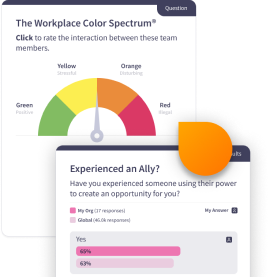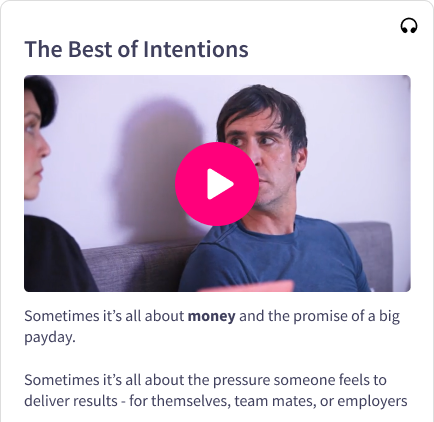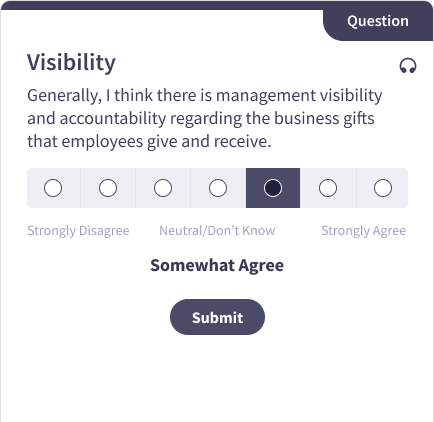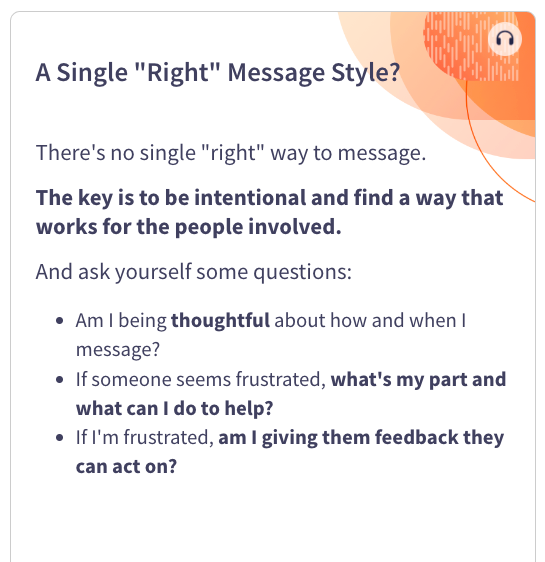
Listening and Responding with Empathy
Everyone has tough days, and coworkers often notice before managers do. Without empathy, these moments can become sources of conflict instead of support. This microlesson offers skills training to help employees show empathy, offer help, and strengthen trust when a colleague is struggling.
Microlesson Description
This microlesson illustrates how to listen with empathy and be understanding when a co-worker is having a bad day or is dealing with a personal matter. People who are experiencing negative emotions like sadness, anxiety, or fear will benefit from the support of others, especially people experiencing intersectionality. Listening with empathy contributes to healthy workplaces by showing people you care and support them.
Key Concepts
- How to make yourself available to the person
- What cues to watch for
- How to help them think through their issue
Microlesson Features
- Employee sentiment pulsing questions that provide leaders with insights into their workforce's core cultural competencies
- Emtrain's Expert Answers tool, enabling employeees to submit anonymous questions about sensitive issues.
- Rich, contemporary video scences illustrating key concepts through realistic scenarios
- A data driven, skill-based approach to eLearning that establishes a shared language for employees.

Related Resources
Related Trainings
Frequently Asked Questions
Below are answers to common questions that employees and managers have about this topic. These FAQs provide a preview of what you’ll learn in this microlesson and why it matters.



